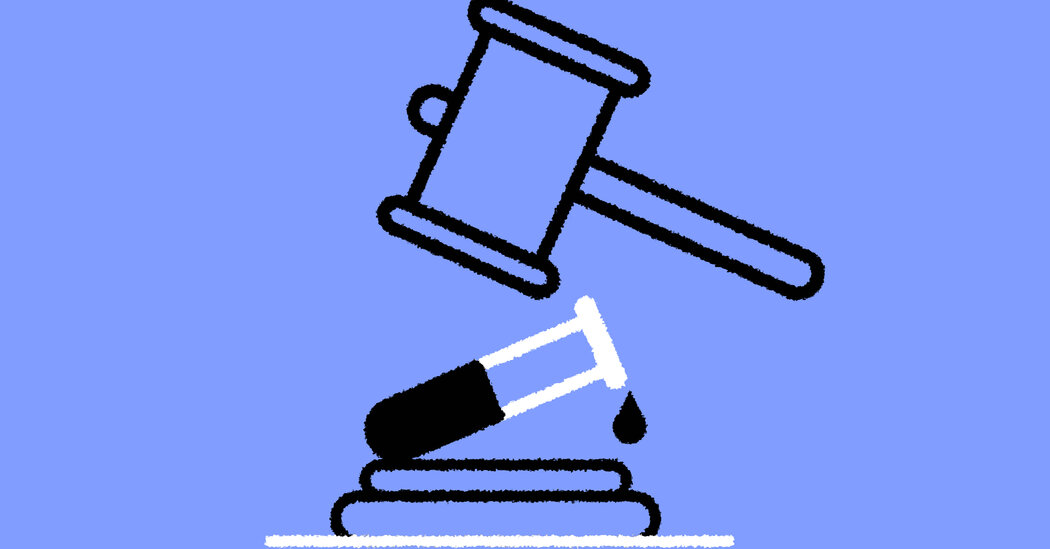How are you? (July 3-9)
A verdict on Theranos and Silicon Valley culture
For many tech start-ups, the era of seemingly endless optimism and immunity—from scrutiny, skepticism, and most importantly, serious legal ramifications—started to unravel when a 2015 exposé on blood testing company Theranos raised questions about the effectiveness of the technology’s tech. Company. On Thursday, a jury found Ramesh Balwani, the No. 2 executive of Theranos, guilty of 12 counts of fraud, giving Silicon Valley another strong warning. Prosecutors’ evidence against Mr Balwani showed that he had been deeply involved in almost every aspect of the business and that he had deliberately misled investors and customers. The sentence was harsher than that of Elizabeth Holmes, the founder and chief executive of Theranos, who was convicted in January of four counts of fraud. It also comes amid other troubling signals in the start-up world: Technology stock prices have fallen sharply this year and investors have become more risk averse.
Job growth remains strong
U.S. employers added 372,000 jobs in June, giving the job market a bigger-than-expected boost — perhaps too big for the Federal Reserve, whose officials want to slow the economy. Wages also continued to rise rapidly last month, and while Fed Chair Jerome H. Powell maintains that high wages are not the main driver of rising prices, the numbers were another sign that inflation is still a long way from that. from the central bank. target of 2 percent. But as troubling as this data may be for the Fed, it was especially reassuring to President Biden, as Friday’s jobs report suggested the United States was not in a recession and that the job market, which he sees as a feather in the cap, was still strong.
No Amazon Hub in Newark
Amazon had once been confident in the prospect of building a cargo center at Newark Liberty International Airport, but admitted defeat last week. The company had faced strong opposition from unions and advocacy groups who had called on Amazon to negotiate labor agreements and commit to a zero-emissions benchmark at the facility. Some of those groups viewed Amazon’s abandoned Newark project as another victory for workers and residents who want a say in whether the tech giant expands into their communities. The same concerns fueled resistance to Amazon’s 2019 efforts to build a second headquarters in New York City.
What’s next? (July 10-16)
Income season starts
Unlike concerned investors, Wall Street analysts don’t seem shocked by a potential recession, at least judging by their forecasts for upcoming corporate financial reports. Right now, they expect S&P 500 companies to report three-month gains that are an average of 4.3 percent higher than a year ago, according to FactSet. PepsiCo, which saw a big surge in first-quarter revenue after raising prices for products, will release its financial data on Tuesday, followed on Wednesday by Delta Air Lines, which expects pent-up demand for travel to boost profits. A group of banks, including JPMorgan Chase and Citigroup, will share their financial statements later in the week, and their reports on loan demand, credit card spending and merger activity will attract more attention than usual as they can provide a window into the direction of the economy. .
The Euro dips
The euro continues to slide toward parity with the dollar, reaching a two-decade low on Tuesday, another sign of the growing threat of a global economic slowdown. The currency started to decline after Russia’s invasion of Ukraine in February, and in May many analysts predicted that the euro would equate to the dollar by the end of the year and continue to decline into 2023. The declining value is due to factors such as disrupted trade channels, sanctions on Russian energy and high commodity and food prices. But the decline is also the result of the dollar’s dominance, which is the strongest in years and still the preferred haven for uneasy investors.
Elon Musk pulls out of Twitter deal
In April, Elon Musk struck a $44 billion deal to buy Twitter. But on Friday, less than three months later, he announced his intention to exit his acquisition of the influential social networking service. Mr. Musk said the company has not provided information necessary to calculate the number of spam accounts and appears to be making incorrect statements. Twitter was quick to respond that it was determined to push through the deal. The next step is the court, in what promises to be a major legal battle, with months of expensive lawsuits and high-stakes negotiations by elite lawyers on both sides.
What else?
Ben & Jerry’s is suing Unilever, its parent company, to prevent it from selling the ice cream brand’s distribution rights to a licensee in Israel. Caught between two competing takeovers, Spirit Airlines has once again chosen to delay a decision a little longer. New consumer price data will be released this week, giving Federal Reserve officials a sense of whether their efforts to calm inflation are working.

